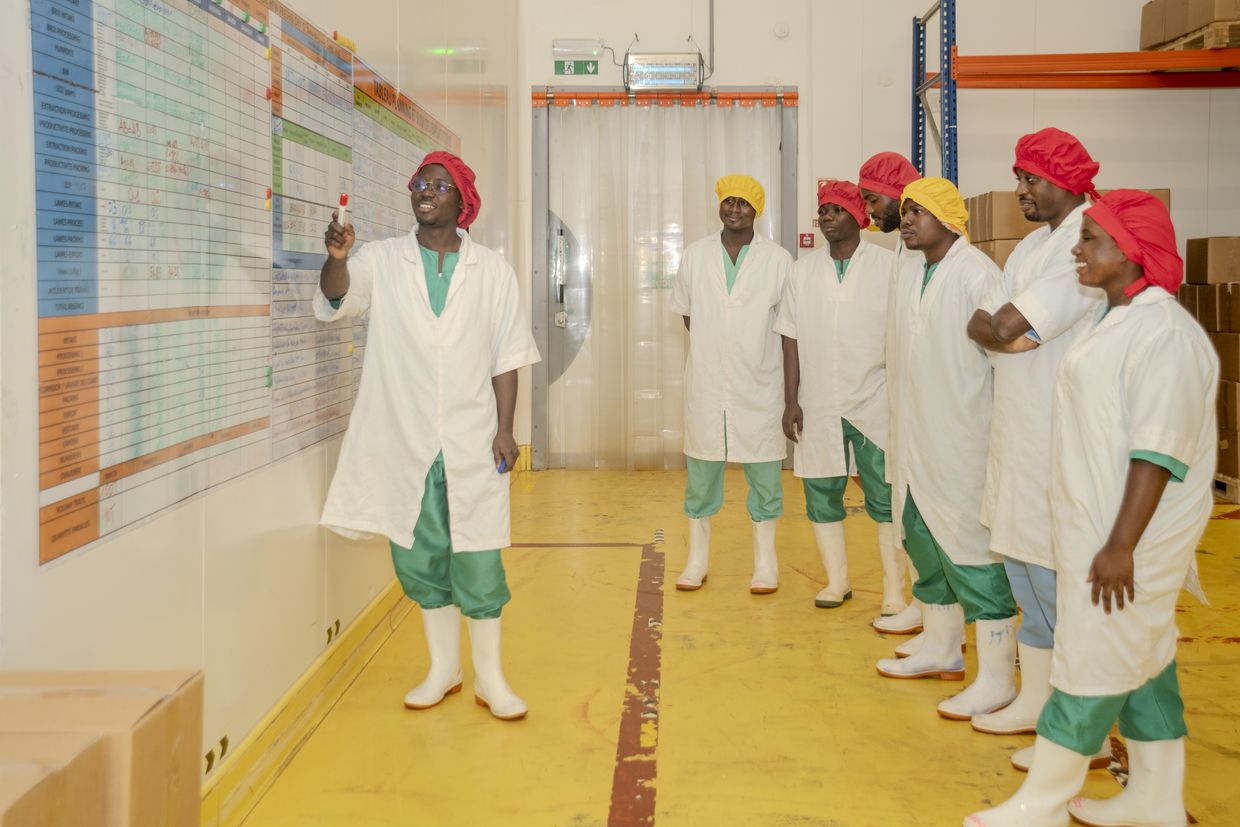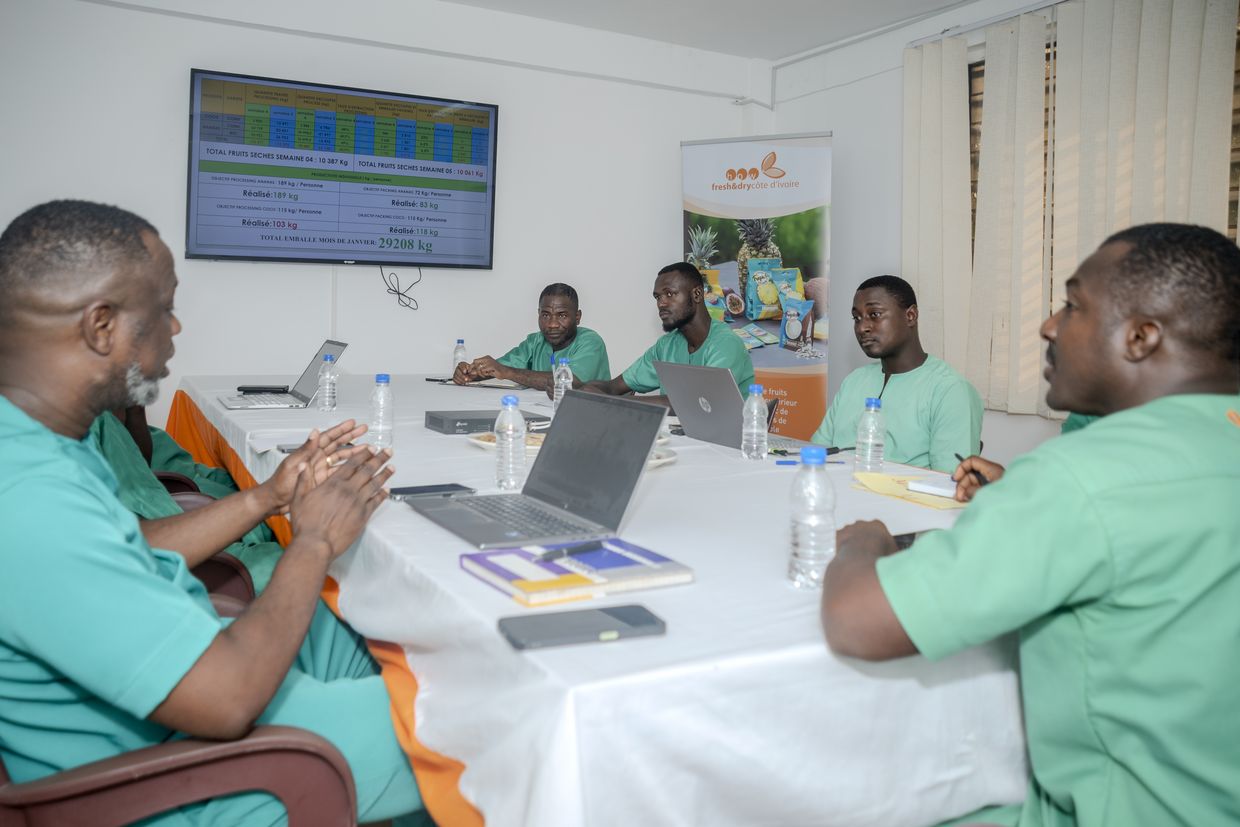
We live our values: How the community and environment benefits.
In the interview with Maik Blaser (Member of the Executive Board, West Africa, Agronomy & Business Development) we find out more about the challenges, successes and sustainable solutions that HPW has mastered along the way.
The challenge
Development of new value chains
One of the biggest milestones for HPW was the creation of new value chains in West Africa. However, this was not without its challenges. Maik Blaser emphasises that securing a continuously growing supply of raw materials while maintaining the same high quality was the biggest hurdle. At the same time, establishing long-term partnerships with local farmers and introducing sustainable cultivation methods was essential.
How did we overcome these challenges? "Through intensive training and the support of our field advisors on site," explains Blaser. Regular visits by agronomists and extensive investment in infrastructure and quality assurance played a key role. These measures have helped to make the supply chain stable and reliable, while at the same time strengthening local communities.

Education as the key to success
Another important part of HPW's work is the training and further education of local employees. The training programmes have not only created professional development opportunities, but have also had a positive impact on the lives of many people in West Africa. "Many of our employees have been able to expand their skills and rise to management positions through targeted training programmes," says Blaser.
One particularly impressive example is the current Managing Director (MD) James Obeng, who originally worked in logistics and worked his way to the top of the company through further training. Such success stories show how important continuous training is for personal and professional development - and how much the company benefits from it. Employee motivation and loyalty have increased, which in turn has a positive effect on the corporate culture and performance.
Sustainability through innovative waste utilisation
Sustainability is a central element of HPW's production processes. We have made it our mission to utilise fruit waste sensibly, thereby both protecting the environment and promoting organic farming. "We try to avoid waste as much as possible by utilising even small pieces of fruit and fruit puree," explains Blaser.
The wet fruit waste is converted in biogas plants to generate energy for production. Woody waste such as mango kernels and coconut husks are also used to heat the dryers. These measures not only enable us to reduce waste, but also to partially cover the factories' energy requirements and thus reduce our dependence on external energy sources.

Efficient water management to protect the community
Water is a particularly valuable resource in West Africa. We therefore rely on sustainable water management to conserve the local water balance. Water is collected during the rainy season and stored in dams for the dry season, which is then used in production. "We use treated rainwater and are therefore less reliant on public water sources," explains Blaser.
We are also planning to further expand our own wastewater treatment plant in order to recycle up to 40 % of the water. These measures will help to further reduce water consumption and increase the sustainability of production processes without burdening the local community.
Global values, one team
HPW operates on two continents - in West Africa and Europe - but acts as a unified team. How do we as a company ensure that the corporate values are practised worldwide? "Through regular workshops, training and open dialogue between our locations," says Blaser. We attach great importance to an open dialogue in which challenges and successes are shared.
Regular visits by employees to the various locations also strengthen the sense of community and promote understanding of the respective local conditions. This ensures that all employees - regardless of their location - share the same values and work together to achieve the company's goals.

Conclusion: Values create success
The interview with Maik Blaser illustrates how HPW has managed to not only strengthen the company but also make a positive contribution to the local community and environment by creating new value chains, targeted training and development measures and sustainable production methods. We create real added value by focussing on sustainable solutions and the development of our employees.